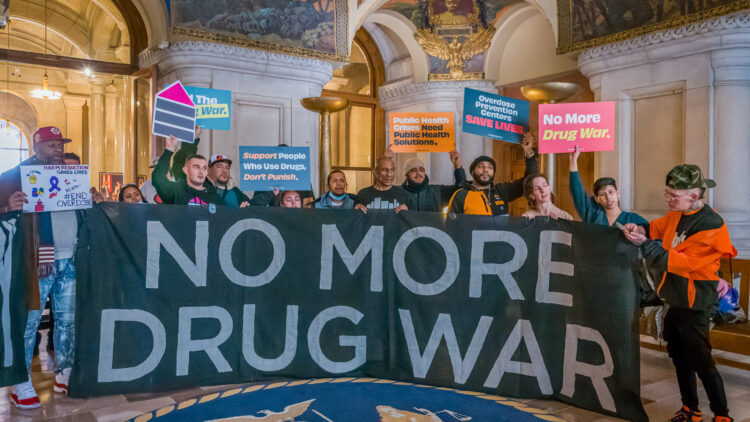|
Hey there, families! If you’re reading this, chances are you’re grappling with the complexities of a loved one’s journey through problematic substance use or perhaps addiction. It’s a path fraught with confusion, heartache, and often a sense of helplessness. But what if I told you that our collective battle against drugs is actually part of the problem, not the solution?
Understanding the Roots of Substance Use Before we dive deep, let’s pause and reflect on why people turn to alcohol and other drugs in the first place. At its core, substance use often stems from an attempt to soothe pain, whether it’s, social, emotional, physical, or psychological. It’s a form of self-medication, an attempt to silence the din of trauma, stress, or unmet needs. I get to ask myself, why would someone not want to be themselves for a few hours? Imagine a child, who instead of learning to navigate their emotions or heal from their wounds, they learn to find temporary solace in alcohol and other drugs. It’s not the substance that’s the core issue but the pain and the absence of healthier coping mechanisms. It’s the very real relationship between the person and the painkiller that gets to be explored. The Historical Context of Drug Prohibition Drug prohibition has a long and storied history, marked by the belief that criminalization is the key to eradicating drug use. Yet, this approach has not only failed to diminish use but has, paradoxically, led to the development of more potent and dangerous substances. It’s akin to trying to douse a fire with gasoline — the problem only intensifies. The Failure of a Punitive Approach
The Stigmatization of Addiction Stigma is a powerful force, silencing conversations and isolating those in the throes of addiction. It’s a barrier to healing, reinforcing shame and guilt in those who are already suffering. The roots of stigmatization are:
Alternative Approaches: A Light at the End of the Tunnel Amidst this landscape of challenge and despair, there’s a growing recognition that we need a new approach — one that embraces compassion, understanding, and evidence-based strategies. Success Stories from Around the World Globally, we’re seeing the positive impacts of harm reduction strategies and the decriminalization or legalization of drugs. These approaches prioritize health and safety over punishment, helping to break the cycle of addiction and its associated harms. Portugal is an example of brave and courageous leadership, when it comes to addressing the causes and conditions that lead to problematic use. The Benefits of a Health-Centered Approach Focusing on harm reduction and treatment rather than punishment can lead to decreased drug misuse, improved public health outcomes, and a significant reduction in the economic burden of substance use on society. A New Perspective on Healing The journey to supporting a loved one through substance use is complex, requiring patience, understanding, and an open heart. It’s about moving beyond the myopic view of drugs or the people who use them as the enemy, to understanding the underlying pain and trauma that fuels use. Compassionate Communication Opening a dialogue grounded in empathy and understanding is crucial. It’s about listening, truly listening, to the experiences and needs of your loved one without judgment or condemnation. Building a Supportive Environment Creating a SAFE, nurturing environment where your loved one feels seen, heard, and valued can make a world of difference. It’s about affirming their worth and supporting their journey towards healing and recovery.
Addressing substance use means looking beyond the physical aspect to the emotional and psychological facets of the experience of addiction. It involves a holistic approach that encompasses mental health support, trauma-informed care, and strategies to develop healthier coping mechanisms. Conclusion: A Call to Action for Families As we navigate this path together, let’s challenge the narratives that have long dominated our approach to drugs and addiction. By fostering understanding, compassion, and a commitment to evidence-based care, we can support our loved ones in finding their way back to health and wholeness. Remember, you’re not alone in this journey. It’s a collective struggle that calls for a collective response — one rooted in love, empathy, and an unwavering belief in the possibility of recovery. Together, we can pave a new path forward, transforming our approach to substance use from one of conflict to one of healing and hope. In this transformative journey, let’s hold onto the belief that change is possible, and that with the right support, understanding, and resources, our loved ones can find their way to a brighter, healthier future.
0 Comments
Leave a Reply. |
AuthorTimothy Harrington's purpose is to assist the family members of a loved one struggling with problematic drug use and/or behavioral health challenges in realizing their innate strength and purpose. Archives
May 2024
Categories |
HoursM-F: 7am - 9pm
|
Telephone323-804-5555
|
|
Medical Disclaimer: The information available from this website has been prepared and/or obtained for general information, education, reference, and/or entertainment purposes only and is not intended to provide medical advice. The owner of this website is not a licensed doctor and is not providing medical advice, or diagnosing or treating any condition you may have. We are not your doctor.
You agree that you will not act upon anything contained in this website without first seeking professional medical advice.
You agree that you will not act upon anything contained in this website without first seeking professional medical advice.


 RSS Feed
RSS Feed

